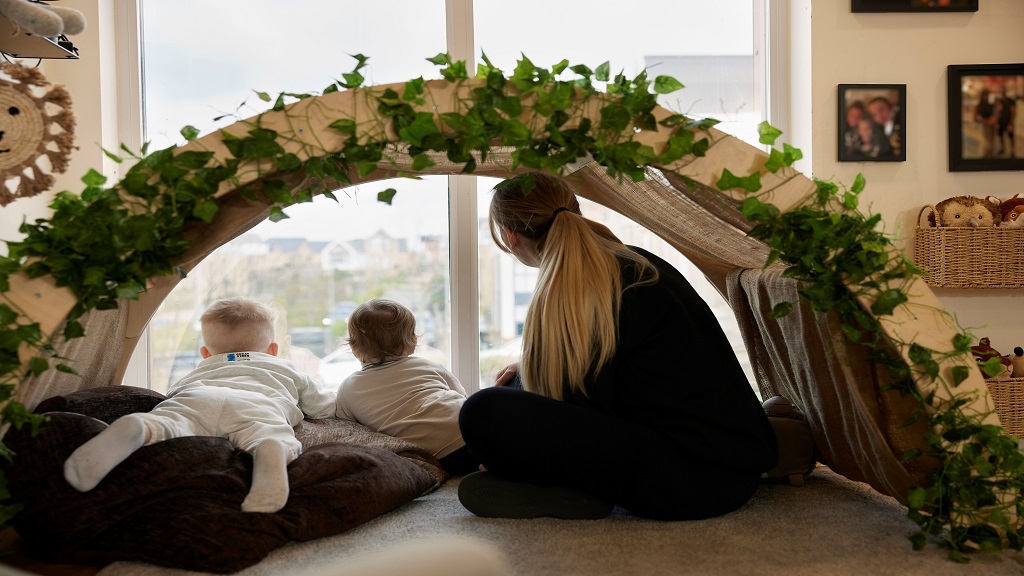Daniel Weir, research analyst at childcare sector insurance firm Morton Michel outlinessome of the pressures facing the industry and why…
Healthy young minds
In the landscape of early childhood development, the issue of mental health has become increasingly important. Sarah Crossley, owner of Your Well-being Company explores the power nurseries have in tackling the crisis
Recent studies reveal a concerning rise in mental health issues among young children in the UK. From anxiety to depression, these challenges not only affect children’s immediate wellbeing but also have long-term implications for their future. However, amid the daunting statistics lies an opportunity for nurseries to play a transformative role in addressing this crisis.
The current state of children’s mental health
Statistics paint a troubling picture: one in eight children aged between five and 19 in the UK experience at least one mental disorder. Factors such as societal pressures, family dynamics and academic stressors contribute to the complexity of the issue. As nursery owners and educators, it’s essential to recognise the profound impact we can have on shaping the mental wellbeing of the children in our care.
Recently, Dame Rachel de Souza, the children’s commissioner released a new report that highlighted the crisis in children’s mental healthcare.
Far more needs to be done to support the wellbeing of our future generations as the figures revealed that nearly one million children and young people – 949,200 – were referred to Children and Young People’s Mental Health Services (CYPMHS), equal to 8% of the 11.9 million children in England.
Furthermore, almost 305,000 entered treatment, but 270,300 were still waiting at the end of the year and some 372,800 (39%) had their referrals closed before accessing CYPMHS. The report also revealed that boys, younger children, and white children all wait for longer for mental health support on average.
Dame Rachel said: “This generation of children have faced uncertain and challenging times like no other generation before them – they are bombarded with negative world news, and many are exposed to the harmful impact of the online world.
“Children are still waiting far too long to access the support they need, and for too many children the speed at which they can access support is still down to the luck of where they live.
“With the right early support, many children would not need access to mental health services.”
Nurseries can make a difference
Nurseries possess a unique opportunity to instill the basic foundations of mental health education through innovative practices. Those working in nurseries day-in and day-out are right at the centre of a child’s growth and development.
By integrating storytelling, meditation, breathing techniques, and emotional regulation into daily routines, nurseries can equip children with invaluable tools to navigate life’s challenges with resilience and self-awareness.
Embed mental health into daily practices
Every interaction within the nursery setting presents an opportunity to nurture children’s mental wellbeing. From promoting outdoor play to fostering positive relationships among peers, these small holistic implementations can have a profound effect on children’s emotional development. Moreover, these practices not only benefit the children, but also support the wellbeing of nursery staff, who are often under considerable pressure.
Holistic approaches in action
Imagine a nursery where mindfulness exercises are seamlessly integrated into the daily timetable, providing children with moments of calm and reflection. Picture storytelling sessions that not only entertain but also serve as platforms for exploring complex emotions and building empathy. Consider the incorporation of regular ‘check-ins’ during registration, providing both children and staff with opportunities to express their feelings and concerns in a supportive environment.
The science behind holistic practices
Research consistently demonstrates the efficacy of holistic approaches in promoting children’s mental wellbeing. Studies show that mindfulness practices can reduce anxiety and improve attention and self-regulation skills in young children. Similarly, storytelling has been linked to enhanced emotional literacy and social understanding. By embracing these evidence-based practices, nurseries can foster environments where children flourish emotionally, socially, and academically.
The role of nursery leaders
As nursery leaders, it’s crucial to recognise the immense value we hold in shaping the future wellbeing of our children. By prioritising mental health and embedding holistic practices into daily operations, we can create nurturing environments that support the development of resilient, emotionally intelligent individuals. Moreover, by supporting the wellbeing of our staff, we ensure a sustainable and effective approach to promoting children’s mental health.
Conclusion
The children’s mental health crisis presents both a challenge and an opportunity for nurseries across the UK. By embracing the science and holistic practices, we can empower children with the essential skills they need to thrive in today’s world. From storytelling to mindfulness, every small implementation in the nursery timetable contributes to building a brighter future for our children.
Together, let us seize this opportunity to make a meaningful difference in the lives of the children in our care, laying the foundation for a happier, healthier society for generations to come.
Latest Features
Michelle Demirtas, head of pedagogical research and development, emotional wellbeing at Bright Horizons explores the critical role of focusing on…
With recruitment and retention of great team members still a hot topic in the industry, Family First’s head of talent…





